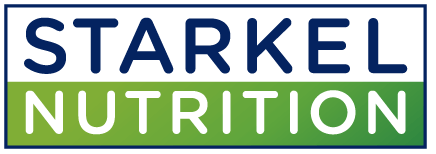
In the best of times, taking care of yourself in treatment can be challenging. Depending on your diagnosis and treatment, side effects can limit how and what you eat, taste of food, exercise, sleep patterns and energy to do daily tasks. In uncertain times, these challenges may feel more overwhelming. While each person’s path is going to be different, there are still a few basic guidelines that can help you stay strong.
Plant-Based Diet
First, eating a plant based diet is always a good idea. Whether or not you have an eating plan that limits the types of food you can eat, there are likely ways to navigate this. Plant foods are nutrient-rich meaning they have the vitamins, minerals, phytonutrients and fiber that our body needs. And depending on the treatment, your needs may be higher than usual. If your potassium or magnesium are low, there are lists of foods high in potassium and magnesium. On the other hand, if glucose levels (measuring blood sugar) are high, there are foods that can prevent those levels from increasing.
Antioxidants
One of the many benefits of plant foods are antioxidants. Antioxidants exist to prevent free radical damage, a normal process in our bodies. Examples of antioxidants are vitamin C, selenium, and vitamin E. There are also antioxidant benefits from many of the phytonutrients we know about. However, in cancer treatment, the use of antioxidant supplements is controversial and most cancer centers still prefer people avoid these supplements while receiving chemotherapy and radiation. However, getting antioxidants in foods is considered safe. This can be as easy as eating colorful fruit and vegetables each day.
Hydration
Another basic but very powerful way to support our bodies in treatment (as well as out) is through hydration. Your body needs these fluids now more then ever. It helps with digestion, kidney function, and maintaining our energy.
Proper Digestion
Finally, work with someone if you’re experiencing digestive issues. When our digestion is not working well, we are not absorbing the nutrients from our food. Even in treatment, we can make changes to improve these side effects, supporting better protection, recovery and fewer potential disruptions in treatment.
When it comes to supporting our body in the presence of a pandemic, everyone is different. Different types of cancers, treatments, tolerances, absorption and most important, different bodies. Focus on finding the path that works for where you’re at now.
If you have questions about how to work with recommended diets, how to improve your digestion or another side effect impacting how you eat, what supplements can be taken in treatment or any other nutrition concern, schedule an appointment with an oncology nutritionist to help you navigate these waters.
Interested in learning more? Schedule an appointment with us to get support on your journey to holistic health.
 |
Edited by the Starkel Nutrition team |
